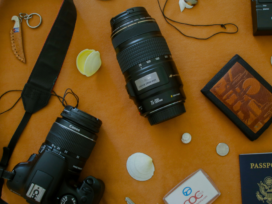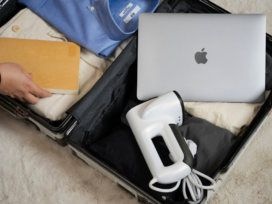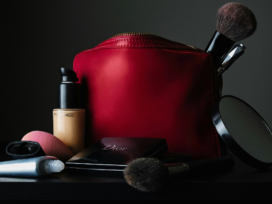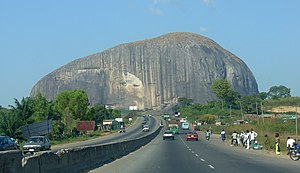
Abuja Nigeria is one of the best planned and organized city in the country. Originally the Abuja was inhabited by the Gbagyi, Koro, Ganagana and Bassa Gade people, it is now a neutral place for all the different Nigeria cultures. Due to its unique position it manages to combine modern with rustic. Abuja is one of the easiest exportable citiy. The roads and transportation options are first class and relatively affordable.
I am a travel enthusiast, born in Abuja precisely at Asokoro. Growing up I always wanted to understand what made the Nigerian capital state an epitome of beauty and attraction to many tourists. This passion and love for my home state led me to begin traveling the different town in Abuja and experiencing the different parts of this countryside. Over the years I have gained first hand mastery of Abuja Nigeria and know exactly what works here. In this definitive Abuja Nigeria travel guide for Allo Traveller, we will explore how to get to Abuja Nigeria, best times to go for an Abuja vacation, Abuja attractions, things to do in Abuja Nigeria, where to stay in Abuja, food to eat and best tips for a trip to Abuja Nigeria.
How to get to Abuja Nigeria?
Abuja is the capital of Nigeria and depending on your starting point, there are several ways to get there including:
By car: You can drive to Abuja or take a bus if you are already in Nigeria. Abuja Nigeria is accessible from other major cities in the country including Kano, Kaduna and Lagos. The network of road to and in Abuja Nigeria is relatively good and there are many bus agencies operating daily to Abuja.
By train: From several Nigerian cities, such as Kaduna, some two hours away, Abuja Nigeria can equally be reached by train. Affordable, comfortable and fast, trains are a great way to explore the countryside.
By plane: The main airport in Abuja Nigeria is Nnamdi Azikiwe International Airport and so you can land here before leaving. This Abuja airport is served by several international and domestic airlines, including South African Airways, Thiago Airlines, British Airways and Emirates.
I suggest that you check out the different transportation options available and picking the one that best suits your preferences and budget.
Also Read about Lagos Nigeria
Best time to travel to Abuja Nigeria

The best time to travel to Nigeria for an Abuja vacation is the dry season, from November to January. However, get ready to face the dusty Saharan winds. Continue reading to find out what to do in Abuja Nigeria, including Abuja attractions, discover its fascinating and long past, and get tips and ideas from an Abuja native about how to make your trip to Abuja Nigeria a success.
Based on a variety of criteria, such as peak travel season, flight and hotel costs, weather conditions, and more, November to February is the best time to visit Abuja Nigeria.
Temperatures in Abuja in summer can reach 106℉ (41℃). The weather can drop to65℉ (18℃) at night in winter, around August.
Visit in January if you're looking for sunshine and want to visit Abuja when the days are longest. Avoid traveling to Abuja in August so as to stay dry as it is the rainiest month of the year.
Top 10 must visit Abuja Attractions

Gurara Falls:
One of the major tourist attractions in Abuja, is Gurara Falls. This stunning natural wonder is about an hour's drive from the city centre and is located in the Gurara Local Government Area of Niger State. This waterfall originates from the Gurara River, creating a stunning view as it flows down a series of rocky cliffs.
Gurara Falls stands at a height of around 30 meters and is popular for its thunderous and powerful roar that makes the overall experience even more intense. By walking along well-maintained bridges and trails that lead to several viewpoints, guests can explore the falls. The mist created by the flowing water and the lush greenery create a peaceful and refreshing atmosphere.
Pro Tip; since Gurara Waterfall offers many stunning photo opportunities, don't forget to bring your camera.
National Children's Park and Zoo:
Offering an educational and fun experience for visitors of all ages, the National Children's Park and Zoo in Abuja is one of the city's main attractions. The goal of this park and zoo is to provide a fun and safe environment for children to obtain knowledge about wildlife and its conservation. Home to various species of animals from around the world, the National Children's Park and Zoo is located in the heart of Abuja.
An ideal destination for animal lovers who get to see lions, crocodiles, elephants, giraffes, and zebras various species of birds. The interactive experiences this park and zoo offers is one of the main highlights. Both adults and children can pet and feed some cute animals such as guinea pigs and rabbits under the supervision of trained Park staff. This hands-on approach provides Park guests a unique opportunity to see these creatures up close and learn more about their behavior and natural habitat.
Pyramid of Thought Arts Center:
A must-visit place for culture buffs and art lovers located in Abuja, Nigeria is the Pyramid of Thought Arts Center. This contemporary art gallery features stunning displays of international and Nigerian artwork. As one of Nigeria's leading arts centres, Pyramid of Thought Arts Center, while encouraging a deeper appreciation and understanding of contemporary art, aims to celebrate and promote Nigerian artists and art.

The gallery offers a wide selection of artwork including photographs, sculptures, paintings and mixed media installations created by emerging and established artists. Guests can explore different artistic themes and styles, giving them a unique insight into African and Nigerian art.
Aso Rock:
One of the most iconic and popular tourist attractions in the capital of Nigeria Abuja, is Aso Rock. Located at the northern end of the city, this impressive rock formation reaches a height of approximately 400 meters. It is very important as it houses the Nigerian National Christian Centre, the Nigerian National Mosque and the Nigerian Presidential Complex.
The official office and residence of the President of Nigeria is the Aso Rock Presidential Complex. Abuja vacation guest can admire its splendor and take photographs of the Aso Rock from some vantage points although they cannot enter the complex. Surrounded by beautiful and lush gardens landscaping, the Presidential Villa within the complex is a magnificent sight.
Offering guests a great opportunity to take unforgettable photographs, Aso Rock offers stunning views of Abuja Nigeria. Moreover, the area around Aso rock is ideal for a picnic or a leisurely walk as it is famous for its peaceful atmosphere. There is a small museum at the base of Aso rock that displays Nigeria's cultural heritage for guests interested in its historical context. Here guests can learn about the indigenous tribes that once lived in the area and the geological formations of Aso rock.
Nigerian National Mosque:
One of the major Abuja attractions that is sure to enchant guests with its majestic architecture and religious significance is the Nigerian National Mosque. This magnificent mosque in the heart of the city is the largest in Nigeria and can accommodate more than 7,000 worshipers at a time. The Nigerian National Mosque is a symbol of unity and peace in Nigeria, designed by Turkish architect Vedat Dalokay.
The architecture features elegant domes, minarets and intricate geometric patterns and is a mix of traditional and modern Islamic styles. What is most striking is the facade of the mosque made of pure white marble, which adds to its charm. It is recommended to visit at dusk or dawn to fully appreciate the beauty of the Nigerian National Mosque, when the sky is the backdrop to this extraordinarily elegant complex.
Another attraction for visitors is the panoramic view of Abuja and peaceful atmosphere from the roof of the mosque. This is the perfect destination for your trip to Abuja because here you can experience the rich culture of Nigeria and admire the architectural splendor.
National Christian Center of Nigeria:
One of the main attractions in Abuja is the National Christian Center of Nigeria. This magnificent building located in the heart of the city displays impressive architecture and represents the important role of Nigerian Christian community. Visitors to the National Christian Center of Nigeria will be welcomed by its stunning design that blends modern elements of art with traditional Nigerian art.
Decorated with stained glass and intricate carvings, the center features a 376-foot-tall tower. The imposing cross atop the building highlights the grandeur of this complex and serves as an important symbol Christians. Guests can explore the large space inside the National Christian Center of Nigeria that houses meeting rooms, auditoriums and several chapels. The main prayer hall has state-of-the-art facilities for services and events, and can accommodate thousands of people.
With exhibits and artifacts highlighting the contributions of prominent Christian leaders in Nigeria, the center also includes a museum presents the history of Nigeria Christianity. While exploring the museum's galleries, guests can learn more about the influence and growth of Christianity in the country.
Zuma Rock:

Located in Abuja, Nigeria, Zuma Rock is one of the most recognizable and iconic places in the city. Located 725 meters above sea level, this gigantic monolith occupies most of the skyline, making it a must-see attraction for tourists and locals alike. This formation is popular for its unique shape that resembles the face of a human. And thus a well-deserved nickname “Africa's Mount Rushmore.”
In addition to its special appearance, Zuma Rock has important historical and cultural significance to the people of Nigeria. Guests can explore the area around the rock, which also includes a picnic area and an amusement park. These areas offer families and friends a relaxing and beautiful environment to enjoy an Abuja vacation to Zuma Rock. In addition, adventurous people can explore special climbing routes to climb sections of rock and view the rugged beauty at a closer proximity.
Millennium Park:
One of the main attractions in Abuja is Millennium Park. This is the largest public park in Abuja located in the heart of the city. It extends over 32 hectares of uncontaminated landscapes and lush vegetation. This park provides guests with a peaceful oasis away from the bustle and hustle of the city. This place is visited by tourists and locals who are looking for a place to connect with nature, unwind and relax.
You will be impressed by the beauty of the landscape as you stroll through the gardens, with its many manicured lawns, beautiful flowers and native trees. The park provides for visitors of all ages a variety of recreational activities. Families can picnic on the outdoor lawn while the kids splash in the pool and fountains or have fun in the playground. With plenty of room for outdoor activities and well-paved trails, it’s a great place for a jog or leisurely walk.
Abuja National Stadium:
One of the main attractions in Abuja, is the Abuja National Stadium in the capital of Nigeria. This iconic stadium in the Garki district is not only a popular tourist destination but also a major sports venue. Originally built to host the 8th African Games in 2003, the stadium is also called "The Eagle Square". One of the largest stadiums in the country with a seating capacity of over 60,000. The stadium's architecture features an impressive lighting system and a unique eagle-shaped design.
Jabi Lake

A major tourist attraction, Jabi Lake in Abuja, Nigeria, offers a beautiful and peaceful retreat from the chaos of the city. Located in the heart of the Abuja, this man-made lake is an ideal attraction spot for adventure seekers, families and nature lovers. Jabi Lake serves as a recreational center where visitors can engage in various activities and covers an area of more than 400 hectares.
The lake's crystal-clear waters provide the best setting for picnicking, fishing and boating. Water sports such as rowing, kayaking and jet skiing are equally popular here and attract adventure seekers of all ages. The surrounding park offers plenty of space amidst the lush greenery for relaxing, jogging or simply walking. There are many beautiful parks and scenic spots along the boardwalk, offering great places to relax and take photos.
11 Best Things to Do and See in Abuja
Visit National Monuments: Including the Abuja National Mosque, designed by AIM Consultants and built in 1984 by Lodigiani Nigeria, Abuja has no shortage of fantastic architecture. Except during prayer hours, this delight for explorers is open to the public.
Another architectural monument that will delight tourists is the National Christian Center with its neo-Gothic design. Others include the ECOWAS, the Ministry of Defense (built in the shape of a ship), Secretariat the National Library and many others.
Buy art:
As big as Abuja Nigeria is, so is the variety of art you can see and buy, and in addition to the art you can buy in the markets, there are many art galleries with paintings, installations, well curated sculptures and more. Galleries that have set up shop in Abuja include Omega Gallery, Thought Pyramid Art Center and Nike Art Gallery.
The Bwari Pottery Village, as the name suggests, is a village dedicated to the art of pottery. You can explore different areas, watch a potter at work, and buy a saucepan, jug or teapot. The Abuja Arts and Crafts Village is also a must-visit.
Or visit the cool interior of a shopping center.
Abuja Nigeria is home to many shopping malls, where you don't have to deal with temperamental traders or crowds. Some of the popular ones include Asokoro Shopping Mall, Jabi Lake Mall, Ceddi Plaza, Park 'n' Shop and many more.
Eat roadside food:
You shouldn't miss out on the culinary experiences of that culture as the essence of an adventure is to experience a new culture. Abuja as the capital of Nigeria is a true buffet of flavors and olfactory delights. It is a must to eat Suya in various forms (turkey, beef, chicken, goat, lamb) and textures (grilled/ Kilishi). There is also akara, cheese / milk curd (wara), masa and various dishes from across the country sold in various cafes around Abuja.
Go one step further with a 5-star restaurants:
You can enjoy dinner, lunch or breakfast with lovers or friends at places like Zuma (steak restaurant), Jevinik (specializing in local dishes), Blu Cabana, Nkoyo (specializing in local dishes), 355 Steakhouse and Lounge, Wakkis (Indian), and many more.
Wild Out:
Abuja nightlife with various nightclubs, pepper soup shops and lounges is another feature of Abuja that delights guests, so having fun in the city is not a problem. The Skybar Rooftop Lounge offers one of the city’s best ambiance and view. The Caribbean Lounge and nightclub offers great cocktails and music, as does the Mashoria Arena.
Catch a movie or two:
Across the city you will find are several cinemas offering inimitable and blockbusters Nigerian movies. Some of them are Off Aminu Kano Crescent, French Cultural Centre, Jalan Libre Ville, are Silverbird Cinema on Tafawa Balewa Way in the Central Business District, Omega Center and Aminu Kano Crescent in Wuse, Wuse and Cyreenee International.
Chase the waterfalls:
Visit Jabi Lake, which is a relaxing and beautiful body of water, the lake is adjacent to Jabi Park, where you can horse ride, and a shopping center where you can easily shop. Especially at night, Jabi Lake also provides guests with boat rides, beautiful views and various water sports. A visit to Gurara Falls should be on your list if you're looking for waterfalls.
This waterfall not only has many myths surrounding it, it equally is a favorite among bird watchers (due to the many bird species that inhabit this area) and ideal for picnics. Pedam Lake and Usman Dam are equally open for bird watching, picnicking and exploring.
Relax at a theme Park:
One of the largest and most beautiful parks in the city Millennium Park, designed by Manfredi Nicoletti. Others include Area 1 Recreation Park, Eden Park and Gardens, Julius Berger Waterfront Park and many more. In these parks you can play soccer, ride a bike, exercise or simply people-watch and enjoy the sun.
Go rock climbing:
For great views of the surrounding countryside (the Presidency is named after the rock) climb Aso Rock, located just behind the Presidential Villa. You can also explore a 725-meter monolith known as the mystical Zuma Rock, considered by the Koro people (the original inhabitants of the rock) to be the home of the spirits of the dead.
Shop in an open markets:
This place is also considered a farmers market and you can buy fresh vegetables and fruits at cheap prices at busiest and lively in the city called Utako market. The Garki model market is the calmest on the contrary, because it is more strictly controlled and well laid.
The most popular is the Wuse market, and the Garki international market which is little larger than the Wuse market, where you can shop for confectioneries and clothes. The ideal place to enjoy delicious fruits and freshwater food is the Kado Fish Market.
Popular foods in Abuja Nigeria
TRUE! Abuja Nigeria is a diverse city with different cultures and ethnic groups. I have put together a list of typical Abuja foods that you might like:
Kilishi: A popular Nigerian dish with spicy and flavorful dried meat marinated in spicy peanut sauce before drying under the sun. This is one of Abuja Nigeria’s popular snack.
Shawarma: This Abuja Nigeria dish is a typical Middle Eastern dish of sliced meat (usually beef or chicken), sauce and vegetables wrapped in a warm flatbread. This is a typical Abuja Nigeria street food.
Jollof Rice: This is a common Abija Nigerian dish made with various spices, tomatoes, rice and peppers. This is a unique dish and is often served with chicken or fried plantains.
Suya: Commonly found at street stalls in Abuja Nigeria, suya is a spicy grilled meat skewer. It consists of chicken or beef marinated in spicy peanut sauce before grilling over an open flame.
Egusi Soup and Pounded Yam: Cooked and mashed until its smooth like dough, pounded yam is a starchy vegetable. It is usually taken with egusi soup made with spices, vegetables and melon seeds.
Akara: Made with spices, onion and peas, akara is a refried bean cake. Akara is often consumed as a breakfast or snack.
Pizza Suya: A Nigeria made fusion dish that combines the flavors of pizza and suya. It is prepared by covering a pizza base with beef or chicken marinated with cheese, peppers and tomatoes.
10 Best places to Stay in Abuja Nigeria
"Where in Abuja is safer?" “Where should I live in Abuja Nigeria?” Etc. I know that those questions are on the minds of those who are thinking about moving to Abuja Nigeria. I have put together a list of the top 10 places to live in Abuja Nigeria:
Wuse:
Considered to be one of the best neighborhoods in the city of Abuja Nigeria. Although some parts are mainly residential, Wuse is more of a commercial area Wuse district is divided into several zones (zones 1 to 7). Wuse Zone 2 is different from Wuse II. Famous places in Wuse include AP Plaza, Wuse Market, General Post Office, Emab Plaza, Wuse Market, Banex Plazas, FRSC, NAFDAC, SilverBird Cinema, Sheraton Hotel, Rockview Hotel, FERMA, AGIS and EFCC. Maitama also shares its exclusivity located very close to Wuse II.
Apo:
Federal Capital Territory, Abuja Nigeria has a fast growing residential city called Apo. Apo is basically an area known for urbanizations and isolated and closed areas. The Apo is about a 25 minutes from the international airport and 15-minute drive from the National Stadium. The surrounding area is quiet and has a good electricity, water, network of roads and other public services. For Abuja Nigeria visitors who wish to stay in this area during their visit to the country, there are several hotels in this neighborhood with many parks and good amenities and gardens to relax.
Jabi:
Jabi Like Utako, is a commercial and residential area in Abuja. Utako district borders Jabi district. About 30 minutes from Abuja Airport and Jabi is about 13 minutes’ drive from the central business district. The main roads passing through Jabi are Alex Ekwueme Road, Nnamdi Azikiwe Highway and Obafemi Awolowo Road. Jabi is famous for its lake, Jabi Lake, as well as Jabi Lake Mall and Jabi Lake Park.
Utako:
A residential and commercial area in Abuja, Utako has an excellent road network and several beautiful residential buildings. Utako is about 30 minutes from Abuja Airport and about 10 minutes’ drive from the central business district. The main roads through Utako are Shehu Yar'adua Road, which begins at Berger Junction, and Obafemi Awolowo Road. You can get to any part of the city and outside the capital without stress since most commercial transport companies have terminals in Utako.
Jahi:
Located in the northwestern part of the Abuja Nigeria, a developing neighborhood in the city. The neighborhood is mainly made up of residential areas with few commercial areas. Jahi is close to Mabushi to the southeast, Katampe to the north and east, Gwarinpa to the west and Kado to the south.
The Jahi area is close to two of the most prominent areas of Abuja Nigeria with major commercial activities, namely Jabi and Gwarinpa. Jahi is a fully established area experiencing rapid population growth as the district develops more. The district has a good road network and great infrastructure. Major roads include Murtala Mohammed Expressway, Ahmadu Bello Road and Katampe Road.
Lokogoma:
Located approximately and 25 minutes from the city centre and 30 minutes from the Nnamdi Azikwe International Airport, this area is popular with the Abuja's middle class. Lokogoma is close to Gaduwa to the north and Apo-Dutse to the northeast, Galadimawa to the northwest, while Lugbe is further west on Airport Road.
Lokogoma remains a developing and growing residential area of Abuja Nigeria. With significant population growth, Lokogoma has seen rapid development over the years. With various commercial areas such as nightclubs, bars, supermarkets, parks, etc, this Abuja neighborhood is equipped with numerous fenced properties.
Asokoro:
Considered to be one of the most popular and largest districts in Abuja Nigeria. Located south of the Central District and east of Garki, Asokoro is home to all the state boarding houses in the city. Home to almost all the ministers of the Nigerian federal government and most of the city's diplomatic community, Asokoro Abuja Nigeria is thus one of the most exclusive neighborhoods in Abuja. Asokoro Abuja Nigeria is the safest and main Abuja neighborhood.
Maitama:
Most of the Abuja Nigeria’s high commissions and embassies, as well as the most expensive Abuja hotels are located in this exclusive neighborhood of Abuja. Maitama is situated to the north of Abuja Nigeria, while the Central neighborhoods and Wuse are located to the southeast and southwest respectively. M
aitama is an expensive and exclusive Abuja neighborhood where prominent politicians and famous politicians of the city stay. Here you will find tons of fantastic nightlife, restaurants, shopping centers, food markets and hotels. Key Maitama locations include: Maitama District Hospital Millennium Park, British High Commission, and Transcorp Hilton Hotel, Sarius Palmetum, Maitama Fruit Market, Maitama Amusement Park and others.
Garki:
This is the oldest Abija Nigeria district. It is situated in the southwestern corner of Abuja and is bordered by the Asokoro District to the east and the Central District to the north. Garki is further divided into other units called "regions". Garki is presently the main Abuja Nigeria commercial district. There are several interesting buildings in Garki.
These include the Agura Hotel, Abuja International Conference Center on Herbert Macaulay Way, General Post Office Nikon, Luxury Hotel and the Old Federal Secretariat Complex building (located in Area 1). Garki II is equally home to Hawthorn Suites Abuja. Area 2 Garki is mainly used for residential purposes, although Area 2 is home to the Garki shopping centre and a zoo.
Located at Moshood Abiola Way in Area 7 are banks and other business offices are. The Navy Army, and Air Force headquarters are situated at Garki. Garki Market and Garki Morden Market are the two main markets in Garki Abuja Nigeria.
Gwarimpa:
Gwarimpa is one of the most popular residential neighborhoods in Abuja and has the largest residential area in West Africa, "Gwarinpa Housing Estate". Gwarinpa is about a 15-minute drive from the central business district. Access via Murtala Mohammed Highway (towards Kaduna, Suleja and Kubwa) or Ahmadu Bello Highway (via Wuse 2).
The distance is approximately 20 km from Abuja Airport. Gwarinpa is primarily a residential area, although a number of businesses, especially those service-oriented such as banks and restaurants, have rapidly emerged recently. There are also several small plantations within the Gwarinpa estate. These include the Federal Ministry of Housing and Works, Abuja Model City, FHA Estate, War College Estate, Citec Villas, etc.
6 tips to help you enjoy your Abuja trip
If you've never been to Abuja, it's time to begin planning. Considered the geographical center of Nigeria, Climbing Katampe Hill to get a clear view of the city of Abuja is undoubtedly the adventure of a lifetime. Well, I guess you have decided to travel to Abuja Nigeria. Let me introduce you to these 8 tips that will help you enjoy your Abuja vacation.
Negotiate before you pay:
Abuja market is no exception like any other market in Nigeria, when it comes to negotiations. In Abuja Nigeria, the price displayed on a product is not always the final or retail price. Retailers will often increase the prices of your products and services once they find out that you are a foreigner or a newcomer to the Abuja market.
There are basically two tricks on how to purchase products or services in Abuja Nigeria. The first is to visit the market with the locals. This means that you have to engage with the locals so that the person can negotiate with them using broken English or the local dialect.
Another way is to try to be friendly with the sellers as you start a conversation with them. This way the seller will be able to tell you the actual price. You can then choose not to buy from the retailer. You may get a better price if you visit other sellers who sell the same product or service you are interested in.
Keep your money safe:
It doesn't mean you shouldn't pay attention to security even as Abuja Nigeria is a beautiful and peaceful city. So you don't spend it all at once, especially when trading I recommend spreading out your money by putting it in three or four different pocket.
Meet the locals:
The most hospitable and friendly people in Nigeria are Abuja residents. All you have to do is show respect as greeting people in Abuja is like a lifestyle. Getting directions from locals is the best way even though with Google Maps you get go anywhere, this is because they know every corner of the city.
Don't make assumptions:
Yes, you heard that right, do not make assumptions. Abuja is a different terrain and a different city. Things may often not be as you expect. Be prepared and ready your mind to face whatever you may encounter. Calm down and laugh about it, instead of complaining, yelling and getting upset when there is a problem.
On your first visit to Abuja Nigeria you will find so many reasons to love Abuja more than any other Nigerian city.
Bring your first aid kit:
Something I emphasize whenever I give advice to tourists about visiting a new theme destination. You should also check your health just as you check your car before embarking on a long trip. I recommend you visit Abuja Nigeria with a medical kit or some basic medications such as ibuprofen, painkillers, paracetamol, etc. although I am not a doctor.
Pack light and Pack less:
Even on short trips, I sometimes wonder what some people, especially women, do with large luggage. You do not have to worry about carrying a lot of luggage just to travel to Abuja Nigeria. It’s enough to take with you a backpack containing what you need. You must learn the art of packing less.
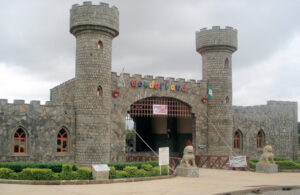
Note from Allo Traveller:
Abuja, the capital of Nigeria, was founded during the boom period of the 1970s. It was decided to move the capital from Lagos to Abuja, the ethnically neutral center of the country after the Biafra War. With good electricity supply, Abija Nigeria is clean, and quiet. There's so much to do in Abuja for those on Abuja vacation to Nigeria, and it's a great place to do some shopping and catch your breath. Contact an Allo Traveller Abuja Nigeria agent for a first class and a first-hand Abuja tour of your lifetime.


